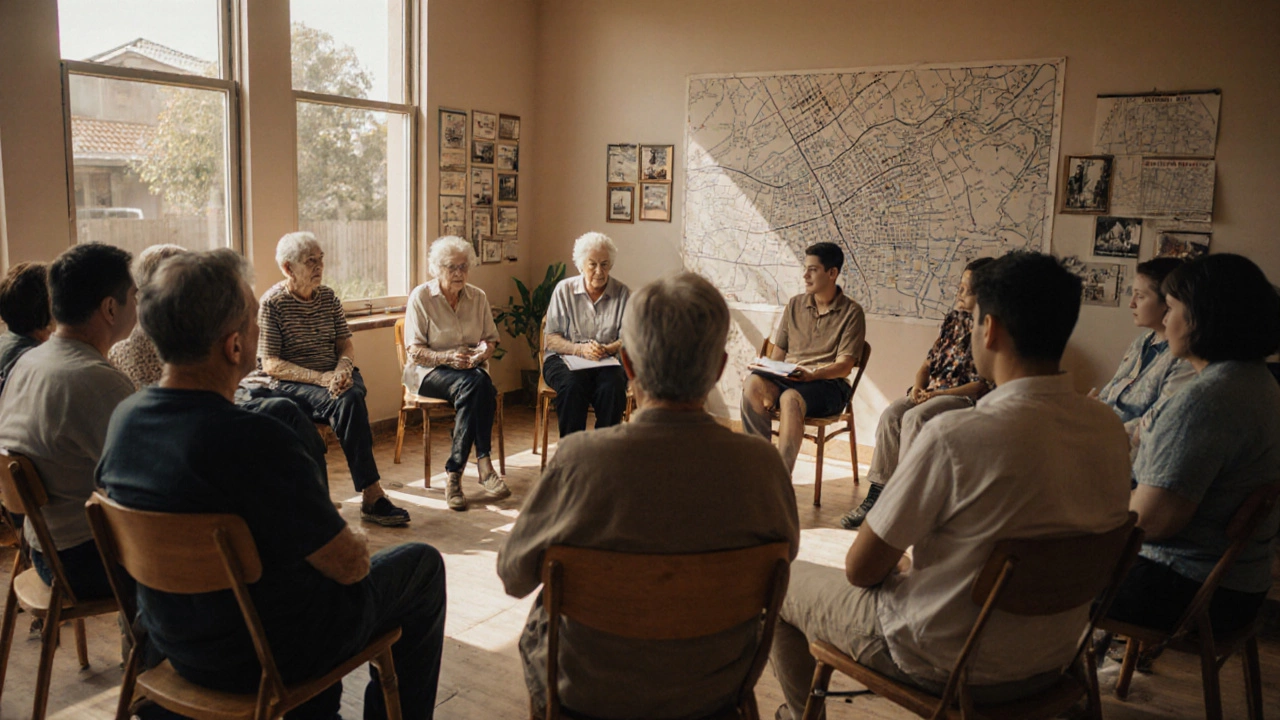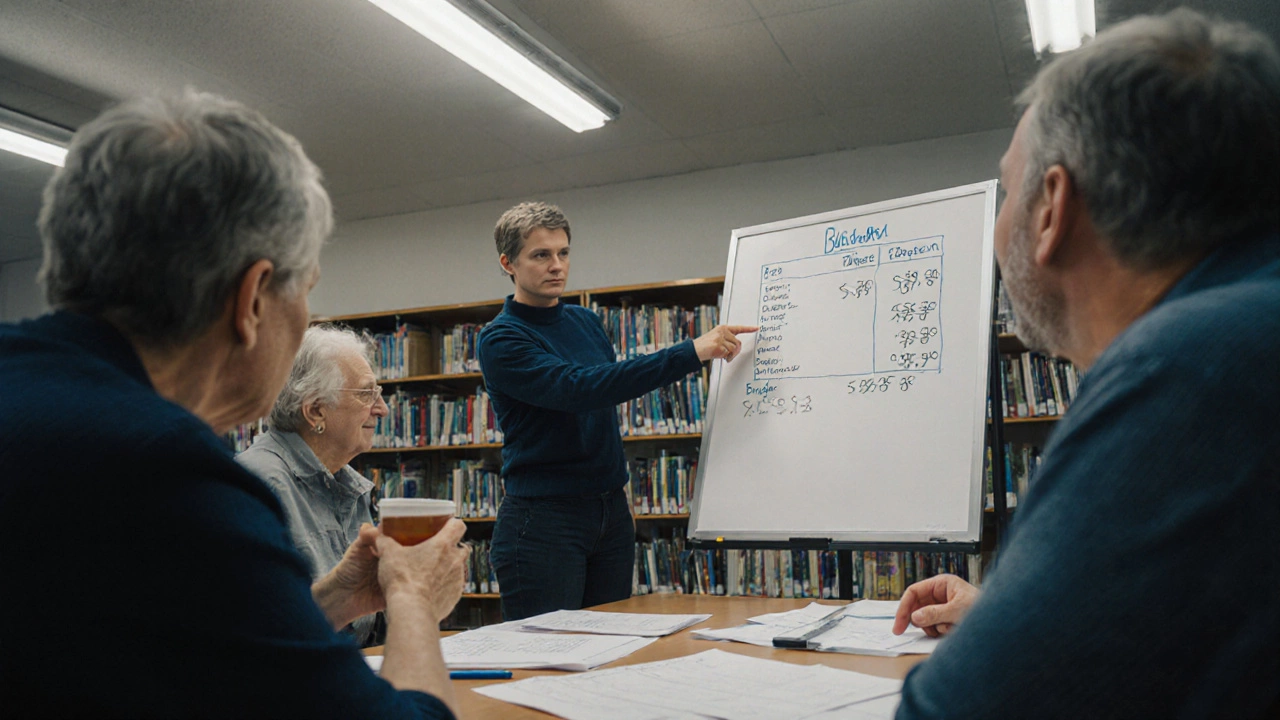What Are the Four Core Values of Community Engagement?
 Nov, 17 2025
Nov, 17 2025
Community engagement isn’t just about hosting events or handing out flyers. It’s about building lasting relationships where people feel heard, respected, and empowered. If you’ve ever tried to get neighbors to show up for a cleanup day or convince a local council to fund a youth program, you know it’s not easy. But the most successful efforts all share the same foundation: four core values that turn good intentions into real change.
Respect
Respect isn’t a buzzword-it’s the first rule of community engagement. It means showing up with humility, listening more than you speak, and acknowledging that the people living in a neighborhood know their own needs better than any outsider ever could. In Melbourne’s western suburbs, a group trying to reduce youth crime didn’t start by designing a program. They sat in community centers, asked open-ended questions, and let residents name the problems. What came out wasn’t what they expected: kids weren’t just bored-they felt ignored by adults who only saw them as a statistic. That insight led to a mentorship program run by local tradespeople, not social workers. Respect doesn’t mean agreeing with everyone. It means recognizing that every voice has value, even the quiet ones.
Transparency
People don’t walk away from projects because they’re busy. They walk away because they feel lied to. Transparency means sharing what you know, what you don’t know, and how decisions are made. When a council proposed building a new park in Footscray, they didn’t just post a survey online. They held weekly drop-in sessions at the local library, showed renderings, shared budget breakdowns, and admitted where funding was uncertain. One resident asked, "What happens if the state pulls the money?" The planner didn’t dodge the question. They said, "We’ll pause and come back to you." That honesty built trust. Later, when the budget got cut, the community helped redesign the park to fit the new amount-because they felt like partners, not afterthoughts.
Inclusion
Too often, "community" means the loudest voices, the most organized groups, or the people who show up on Tuesday nights. But real inclusion means going where the silence is. That means meeting people at their doors, their churches, their language classes, their online groups. In Dandenong, a health initiative targeting refugee families didn’t rely on English flyers. They trained bilingual volunteers to host cooking classes that doubled as health workshops. They didn’t just translate materials-they adapted them. One session on diabetes didn’t mention "carbs." It talked about "rice portions" and "sugar in tea." Inclusion isn’t about checking boxes. It’s about designing so no one has to fight to belong.

Accountability
Accountability means following through-not just when it’s convenient, but when it’s hard. It’s about setting clear goals, measuring progress, and telling people when you fall short. A neighborhood group in Preston set out to reduce litter in local parks. They didn’t just organize cleanups. They tracked how much waste was collected each month, posted the numbers on a public board, and invited residents to suggest fixes. When the numbers didn’t drop after three months, they didn’t blame people. They asked: "Did we miss something?" Turns out, the bins were too small and too far apart. They added more, and within two months, litter dropped by 60%. Accountability isn’t about blame. It’s about saying, "We’re in this together, and we’re not giving up."
These four values-respect, transparency, inclusion, and accountability-are not steps in a checklist. They’re habits. They’re the quiet decisions you make every day: Do you listen before you speak? Do you share the messy details? Do you reach out to those who don’t come to meetings? Do you own up when things go wrong?
When these values are real, community engagement stops being something you do. It becomes something people live. And that’s when change sticks.
What happens when one of these values is missing?
Without respect, you get tokenism-people invited to sit at the table but never allowed to set the menu. Without transparency, you get distrust that spreads faster than rumors. Without inclusion, you get programs that look good on paper but leave out the people who need them most. Without accountability, you get empty promises that wear people down until they stop showing up at all.
One community center in Broadmeadows tried to run a youth program but skipped inclusion. They advertised in English, held meetings at 6 p.m., and assumed parents would figure it out. Only three kids showed up. They later realized most families worked two jobs, spoke little English, and didn’t trust institutions. When they shifted to Saturday morning sessions with translators and free meals, attendance jumped to 40. That’s the difference between doing something for people and doing it with them.

How do you know if you’re getting it right?
Look for these signs: People start bringing their friends. They ask questions you didn’t expect. They volunteer to help without being asked. They show up even when there’s no food or free t-shirts. That’s when you know you’ve built something real.
You don’t need fancy tools or big budgets. You just need to show up, listen, and keep showing up-even when it’s slow, even when it’s hard.
What’s the difference between community engagement and community outreach?
Community outreach is usually one-way: you give information, distribute flyers, or invite people to an event. Community engagement is two-way: it’s about listening, learning, and co-creating solutions with people. Outreach says, "Here’s what we’re doing." Engagement says, "What do you need, and how can we do it together?"
Can these values work in small towns too?
Absolutely. In fact, they’re often easier to practice in smaller places because relationships are closer. In a town of 2,000, if you forget to include someone, people notice. That pressure to get it right makes accountability and inclusion more natural. Small towns don’t need big programs-they need consistent, honest connection.
Do these values apply to online communities too?
Yes. Online groups can be just as exclusionary or disrespectful as in-person ones. Transparency means explaining why a post was removed. Inclusion means making space for people who speak different languages or use screen readers. Accountability means admitting when a moderator made a mistake. Respect means not silencing voices just because they’re uncomfortable. The values don’t change-just the medium.
How long does it take to build real community engagement?
There’s no shortcut. Trust takes months, sometimes years. In one case, a group spent 18 months just talking to families before launching a food security project. They didn’t rush. They didn’t need a quick win. They needed lasting change. Real engagement isn’t measured in events-it’s measured in relationships.
What’s the biggest mistake people make?
Thinking they already know what the community needs. The biggest failures happen when outsiders design solutions based on assumptions, not conversations. You don’t fix a problem by guessing. You fix it by listening-and then letting the community lead the way.
What’s next?
Start small. Pick one value-maybe respect-and try applying it in your next interaction. Ask someone, "What’s one thing we should be doing differently?" Then really listen. Don’t plan your reply. Don’t interrupt. Just hear them.
Then do it again next week. And the week after that.
Real change doesn’t come from grand plans. It comes from quiet, consistent actions-rooted in values that don’t change, no matter the size of the crowd or the budget.